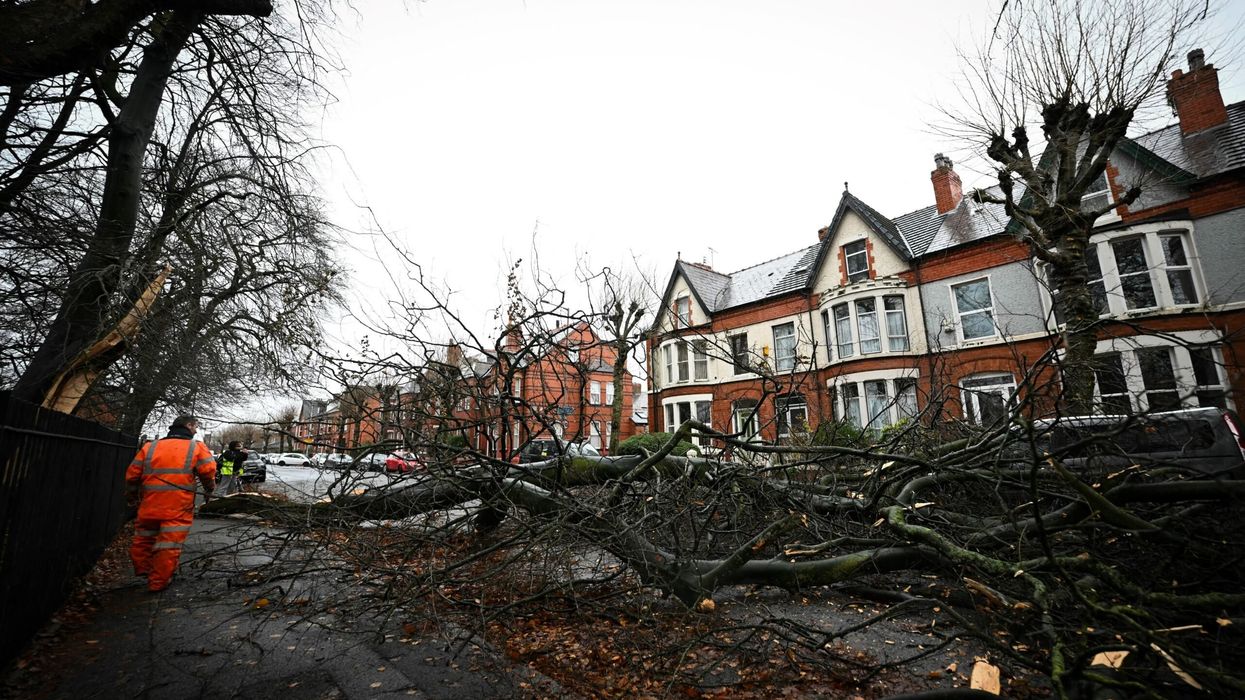TENS of thousands of homes across the country were without power on Saturday, and two people lost their lives after Storm Darragh brought strong winds and disrupted pre-Christmas travel.
The UK's Environment Agency issued multiple flood warnings as the storm, the fourth named of the season, continued to bring heavy rain over the weekend.
Business secretary Jonathan Reynolds described the situation as "challenging" in a statement to Sky News on Saturday.
Two men were killed in separate incidents when trees fell on their cars in Lancashire, northwest England, and the West Midlands.
In Wales, gusts reached up to 150 kilometres per hour (93 miles per hour), prompting the declaration of a "major incident" in some areas. The Welsh devolved leader said the storm caused "very significant effects in many parts of Wales, including on transport, energy infrastructure and property," and warned that the impact could be felt for days.
As of Saturday afternoon, 177,000 homes across England, Scotland, and Wales were reported to be without power, according to the Energy Networks Association.
Train services faced significant disruption, with routes between Glasgow and Edinburgh and between Cambridge and Stansted Airport affected. Rail operator CrossCountry issued a "do not travel" advisory, citing cancellations and severe delays.
Network Rail Wales suspended services along the Welsh northern coast due to a fallen tree blocking the line. Bridges in southern England and Wales were closed for safety reasons.
In Northern Ireland, thousands of homes were without power, and many bus and train services were delayed or suspended.
Christmas markets and sporting events, including the Merseyside derby between Liverpool and Everton, were postponed.
In Ireland, 175,000 homes were without electricity as of Saturday evening, with ESB Networks reporting "widespread and extensive damage to electricity infrastructure." Dublin Airport announced that several flights scheduled for Saturday morning had been cancelled by airlines due to the storm.
The Met Office issued a rare red alert for high winds from early Saturday morning, covering parts of Wales and southwest England. A broader amber warning, highlighting a "potential risk to life and property," remained in effect across much of the UK and Northern Ireland until Saturday night.
The storm comes just two weeks after Storm Bert caused significant flooding in parts of Wales and left thousands in Ireland without power.
(With inputs from AFP)




